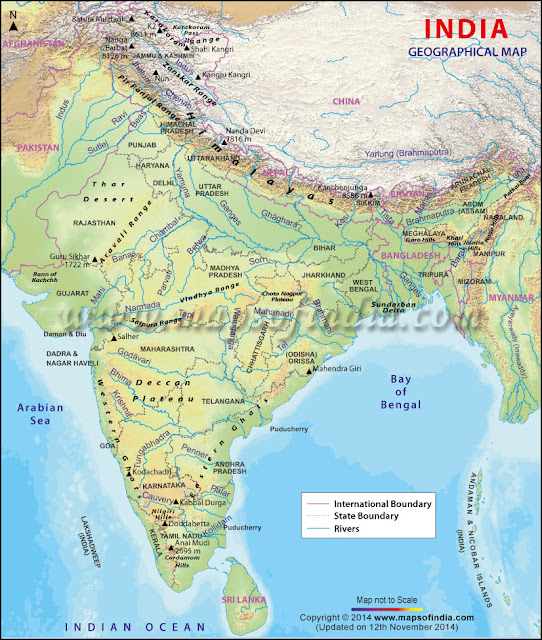Gautam Buddha - Life & Teachings
Gautam Buddha
- Buddhism was founded by Gautama Buddha.
- Buddha was born as Prince Siddhartha at Lumbini near Kapilavastu (in present Nepal) in 566 BC.
- He was the son of Suddhodhana and Mahamaya. Suddhodhana was the chief of the Sakya clan. Due to this, Buddha was also known as ‘Sakyamuni’.
- His mother died either giving birth to him or after seven days. Siddhartha was brought up by his maternal aunt, Prajapati Gautami. This gave him the name ‘Gautama’.
- He was married to Yashodhara and had a son, Rahula.
- He left his home at the age of 29 to become an ascetic. This event is called Mahabhishkramana.
- The idea of renunciation occurred to the Buddha after he saw four different states of man – sick man, old man, corpse and ascetic.
- Buddha wandered for seven years and at the age of 35 attained enlightenment at Uruvela while meditating under a Peepal tree (Fig Tree/ Ficus Religiosa) on the banks of the river Niranjana. This tree came to be known as ‘Bodhi tree’ and the place became Bodh Gaya (in Bihar).
- He gave his first sermon at Sarnath near Varanasi. This event is called Dharmachakra Pravartana/ Dhammachakkappavattana.
- He died in 483 BC under a Sal tree in Kushinagar (in UP). This event is called the Mahaparinirvana.
- The term ‘Buddha’ means ‘enlightened one’.
- Important contemporaries of Buddha were Mahavira Jaina, Kings Prasenjit, Bimbisara and Ajatasatru.
Buddhist Philosophy/Teachings of the Buddha
The teaching are mentioned below:
- It teaches the Middle Path renouncing extreme steps like indulgence and strict abstinence.
- The four noble truths (Arya Satya) in Buddhism are:
| Four Noble Truths – Buddhism Facts for UPSC |
| 1. The world is full of sorrow |
| 2. Desire is the root cause of all sorrow |
| 3. Sorrow can be conquered by conquering desire |
| 4. Desire can be conquered by following the eight-fold paths (Ashtangirka Marga) |
- The eight-fold path in Buddhism is:
| Eightfold Path in Buddhism |
| Right understanding |
| Right resolve |
| Right speech |
| Right action |
| Right living |
| Right efforts |
| Right thought |
| Right self-concentration. |
- The Tri Ratnas of Buddhism are: Buddha, Dhamma and Sangha. Details are mentioned below:
| Triratnas of Buddhism | Meaning of Triratnas |
| Buddha: | the highest spiritual potential in everyone. |
| Dhamma: | the teachings of Buddha (Pali for Sanskrit Dharma or righteousness) |
| Sangha: | order of monks who follow Buddhism. |
- Buddha did not believe in God or the soul.
- Stressed on karma and ahimsa.
- He was against the varna system. Buddha taught in Pali.
- Buddhism spread to several countries outside India. China adopted Buddhism in the 1st century AD.

Comments
Post a Comment